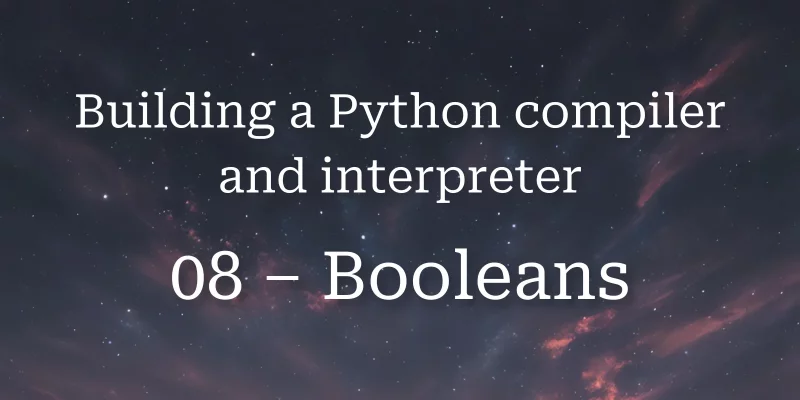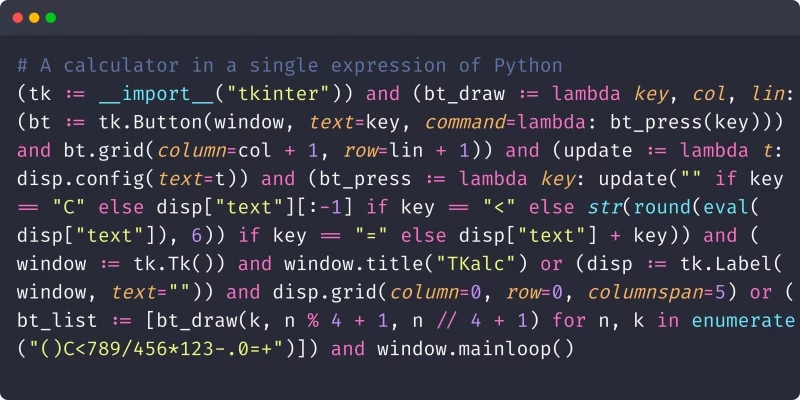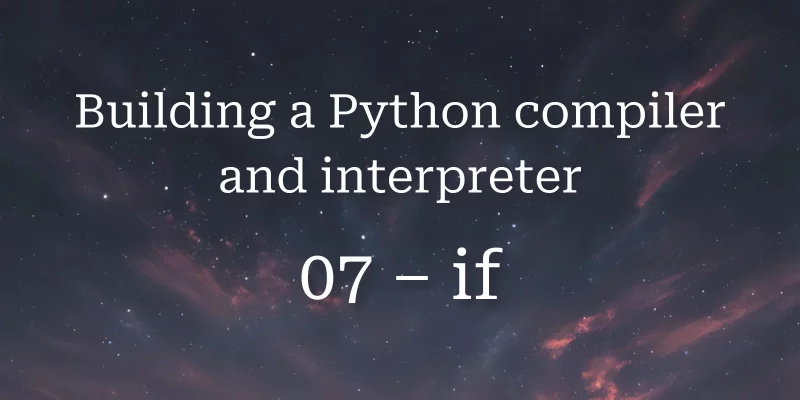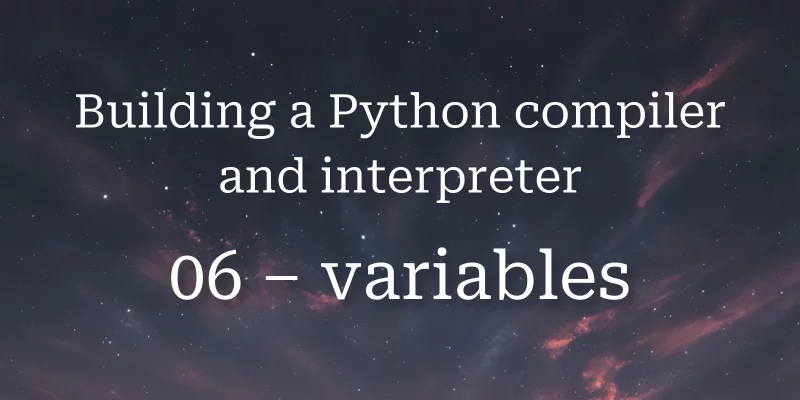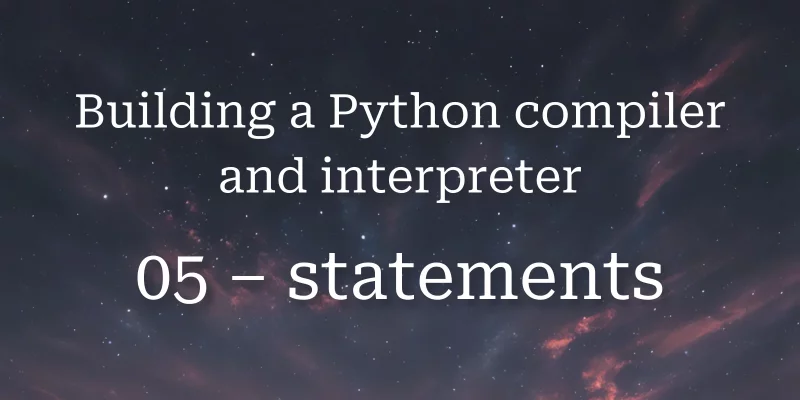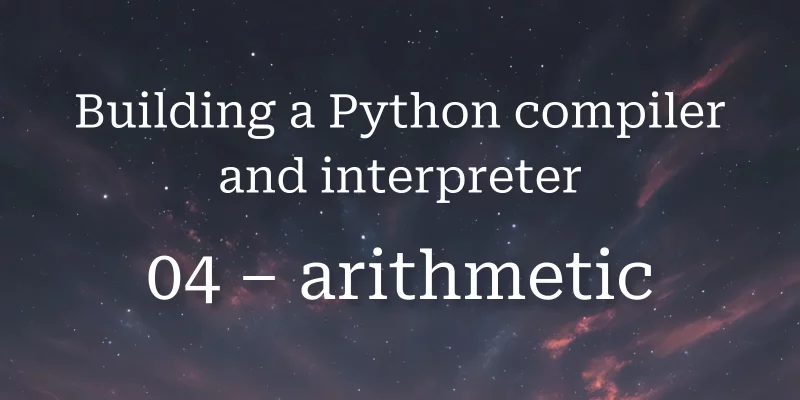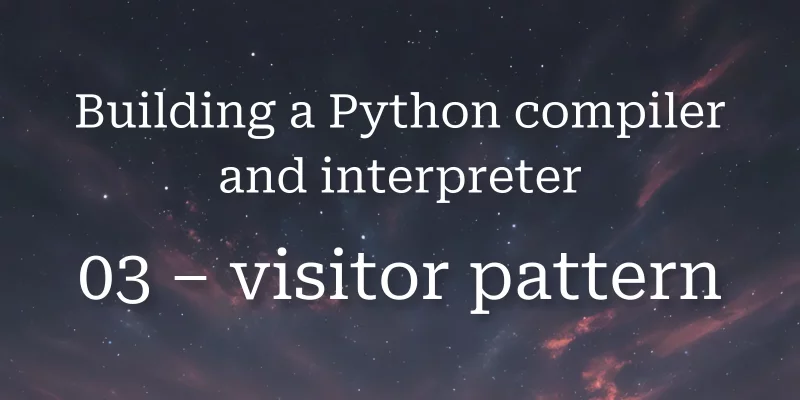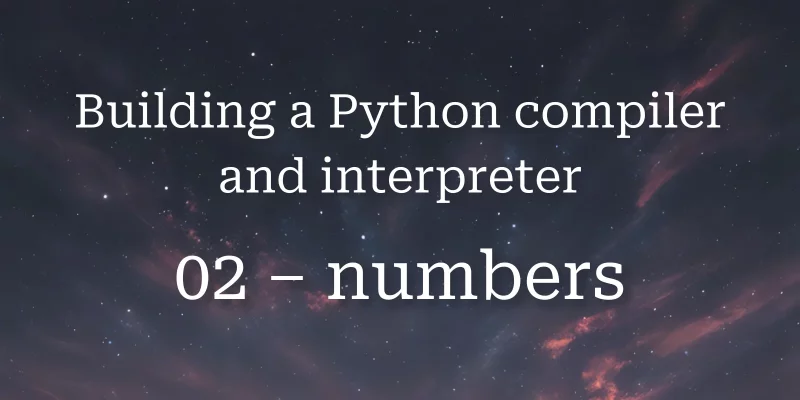In this article I explore a common code smell related to conditionals and Boolean values and show how to fix it.
This article shows how to use the Python built-in divmod for unit conversions.
This article explains what *args means in Python and how to use it in your own functions.
In the 9th part of this series of building a Python compiler and interpreter we will add support for Boolean operators and Boolean short-circuiting.
This article explains why a user would need to use enums in their code and shows how to do it with a simple example.
This article shows 5 ways of flattening a list of lists, ranked from worst to best.
A conversation between Rodrigo Girão Serrão and Stephen Gruppetta on analogies in programming.
In the 8th part of this series of building a Python compiler and interpreter we will add support for Boolean literals and Boolean operators.
Today I learned how many soft keywords Python has and what they are.
Today I learned that the underscore _ is a soft keyword in Python.
In the 7th part of this series of building a Python compiler and interpreter we will add support for if statements.
In the 6th part of this series of building a Python compiler and interpreter we will add support for variables, simple assignments, and chained assignments.
In the 5th part of this series of building a Python compiler and interpreter we will add support for multiple statements in our program.
In the 4th part of this series of building a Python compiler and interpreter we will add support for more arithmetic operations and parenthesised expressions.
In the third part of this series of building a Python compiler and interpreter we will make our parser, compiler, and interpreter, much more flexible with the visitor pattern.
In the second part of this series of building a Python compiler and interpreter we will improve the support of numbers.
Today I learned that you can run custom Python code when Python starts-up, before running other scripts or programs.









